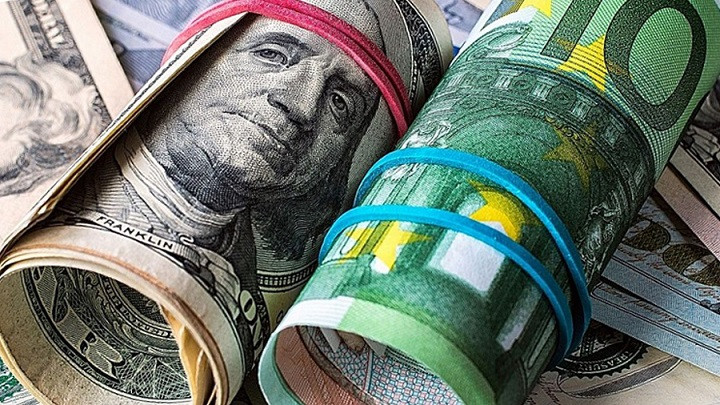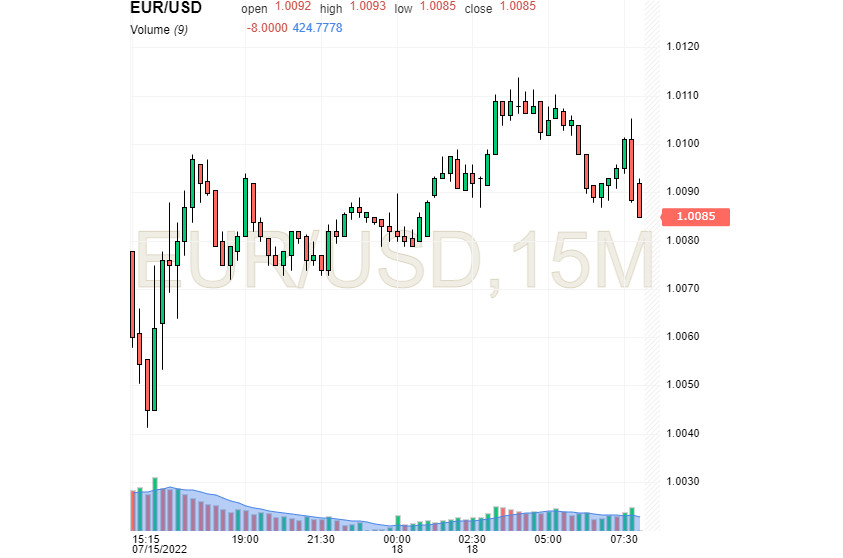
The gas issue associated with the introduction of anti-Russian sanctions, and the problems that arose after the lack of fuel in the eurozone, undermined the position of the euro. Against this background, the EUR fell to parity with the greenback, and then even lower. By now, the situation has somewhat stabilized. However, many analysts believe that in terms of the global market, the euro is close to losing.
The current week the euro began with attempts to rise, often unsuccessful. At the end of last week, the euro was given $1.0094, and by now it has fallen in price again. The EUR/USD pair was trading at 1.0085 on Monday morning, July 18, causing concern among traders and investors.

Market participants are looking forward to Thursday, July 21, when the decision on the gas coming through the Nord Stream pipeline will be made public. The fate of blue fuel depends on many factors, and the further dynamics of the euro depends on its receipt in the countries of the European bloc. Currency strategists are counting on the resumption of gas supply through the Nord Stream pipeline from Russia to Germany. If, after scheduled maintenance, the launch of gas does not occur, then most world currencies will be at the bottom, analysts at the Commonwealth Bank of Australia believe. In the event of the suspension of the pipeline, Europe will be covered by an energy crisis that will provoke a recession in the region. The implementation of such a scenario will put serious pressure on the euro, experts conclude.
The current week will be decisive for the euro. On Thursday, the European Central Bank is expected to raise its deposit rate by 25 bp to -0.25% for the first time since 2011. However, the markets are worried about the uncertainty of the central bank on a number of issues. Fuel to the fire adds a sharp increase in the cost of imports amid rising energy prices, primarily oil and gas. As a result, an impressive trade deficit was recorded in the eurozone, if it persists, the euro will seriously sink. At the moment, the euro is under pressure from the risk of unprecedented economic stagnation caused by the biggest energy crisis in the last 50 years.
An additional factor of pressure on the euro, in addition to the energy crisis, experts believe the likelihood of a debt crisis. The above risks are exacerbated by skyrocketing inflation and the rate hike by the ECB. The high likelihood of a recession and a potential shortage of gas due to reduced supplies from the Russian Federation prevent the ECV from raising rates at the same speed as the Federal Reserve. A significant difference in interest rates contributes to the weakening of the euro against the USD. According to analysts, "the rate differential in the eurozone and the US" was not in favor of the EUR.
The euro was unable to take advantage of the short-term subsidence of the dollar, which started the week with a pullback from multi-year highs. Recall that this year the greenback skyrocketed thanks to a combination of rising Fed interest rates and the instability of the economies of Europe and China. Last week, the USD reached parity with the euro for the first time in 20 years, and then exceeded it. To date, the dollar has again rolled back to lower values than before, but still remains the strongest contender in the financial market.
Strengthening the greenback contributes to the current monetary policy of the Fed. A key factor in the strengthening of the USD is the central bank's move to raise rates in response to record high inflation in the US. It is expected that in July, at the next meeting, the Fed will raise interest rates by 75 basis points. At the same time, some analysts and market participants expect an increase of 100 bp. However, the likelihood of such a rise is now questionable.
In the context of a possible recession and an increase in interest rates in the US, investors prefer to go to the dollar. This fuels the latter's momentum, helping it rise against the euro. According to currency strategists at HSBC, further strengthening of the greenback is possible with a slowdown in global economic growth. Against this background, HSBC raised its forecast for the US currency, emphasizing that "the dollar bull run is not over yet." Strengthening the greenback during a crisis is a standard market reaction, experts emphasize.
 English
English 
 Русский
Русский Bahasa Indonesia
Bahasa Indonesia Bahasa Malay
Bahasa Malay ไทย
ไทย Español
Español Deutsch
Deutsch Български
Български Français
Français Tiếng Việt
Tiếng Việt 中文
中文 বাংলা
বাংলা हिन्दी
हिन्दी Čeština
Čeština Українська
Українська Română
Română

